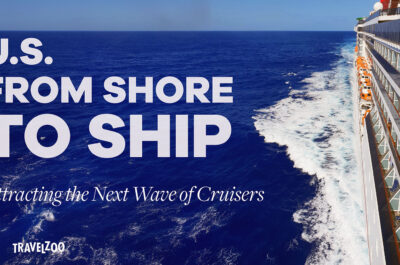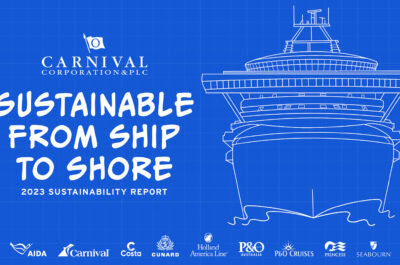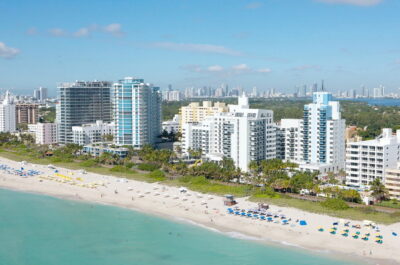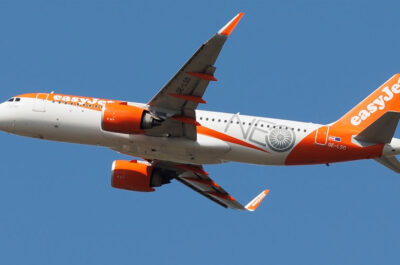Government agencies and law enforcement alerts most trusted sources for health, safety and security information; 62 percent of more than 2,000 leisure travelers will cancel plans to avoid regions or continents experiencing health or safety concerns.
SAN JOSE, CALIF. – What worries travelers the most amidst the never-ending diet of news and first-person social media accounts of conflict, upheaval and health risks around the world?
Given the voluminous coverage, you won’t be surprised to hear that one in four travelers has changed vacation plans in the past year due to global or local safety, security or health concerns – and terrorism activity tops the list of reasons tourists will avoid travel to certain destinations. But you might be surprised to learn Ebola has become the number-one infectious disease that travelers worry about, according to 67 percent of travelers. And believe it or not, islands, large and small, are considered the safest places to have a vacation.
These findings are part of a new study undertaken by the Chief Marketing Officer (CMO) Council’s GeoBranding Center and AIG Travel. Data for the report, entitled “How Global Voices Shape Travel Choices: The Impact of Consumer Apprehension on Travel Intention” was collected from more than 2,000 American, European and other global travelers worldwide during October 2015 via an online survey by the CMO Council and Travelzoo.
The research aimed to gather consumer views and specific areas of concern that lead travelers to alter their plans, intentions or destination picks. Among these events and incidents are terrorist attacks, natural disasters, disease outbreaks, regional conflicts, political upheaval, crime and violence, civil unrest, plane crashes, and cruise line accidents or food safety issues.
The study reveals that personal safety has become a major concern for tourists as real-time news channels multiply and social media postings bring first-hand accounts of incidents or situations to aspirational leisure travelers, impacting decision-making around desired destinations. More than 60 percent of survey respondents report that turmoil, health hazards or active conflicts could sway or even deter their travel to a specific country or region.
Almost half (43 percent) of all participants in the survey say they have purchased travel insurance due to safety concerns and uncertainty, and a notable 80 percent say they are likely to consider buying emergency medical coverage for future travel. Reflecting growing anxiety levels, nearly three quarters (74 percent) expect to add trip cancellation insurance, nearly half (47 percent) will consider political or emergency evacuation policies, and 42 percent are thinking about coverage that provides accidental death benefits.
“In line with the findings from this study, we’ve received many questions recently about the role of travel insurance amid the perception of increased risk to personal safety while traveling,” said Jeff Rutledge, CEO of AIG Travel. “In truth, travel insurance is as crucial today as it was last month or last year. The risk of unforeseen events has always been a travel reality, and insurance helps travelers prepare for this risk, providing assurance that assistance will be available if their trip doesn’t go according to plan.”
Topping the list of the most desirable and safe destinations are Australia and New Zealand, as well as islands in the Pacific and Western Europe. More than 62 percent of travelers would like to visit ANZ, two countries which have a zero rate of travel concern or anxiety. This compares to 10 percent or less who want to visit North, Central or West Africa and the Middle East. Some 20 percent, however, said they were keen on visiting Southern Africa. With interest in distance and isolation, a few survey participants even named Antarctica, Iceland, Greenland and the Arctic as desirable destinations.
The top five reasons for avoiding travel to certain destinations include:
- Terrorist activity (77 percent)
- Military conflict or fighting (59 percent)
- Outbreak of disease or health risks (46 percent)
- High incidence of crime (25 percent)
- Political upheaval (25 percent)
Good examples of these issues are the Middle East and North Africa, where turmoil, terrorism, civic strife and refugee migration are unfortunately keeping popular destinations like Egypt, Turkey, Tunisia, Morocco, Saudi Arabia and other travel destinations in the news and at the top of the travel advisory lists of many affluent economies.
When it comes to the most trusted sources of travel planning relating to safety and security, government agencies and law enforcement alerts are relied upon by more than half (55 percent) of survey participants while 36 percent believe trusted information comes from news media and travel journalists for information. This is ahead of friends and family (34 percent), third-party crowd-sourced travel rating sites (25 percent), and social media networks (17 percent).
According to the United Nations World Tourism Organization‘s Tourism Barometer, international tourist arrivals grew by 4.3 percent in the first eight months of 2015, fueled in particular by strong results in Europe, a region our survey respondents believe is one of the safest travel destinations. International tourists (overnight visitors) traveling the world between January and August 2015 reached 810 million – 33 million more than during the same period of 2014.
Fears of travel to Africa and need for country destinations to provide compelling
reasons to visit
Roughly half of more than 2,000 active travelers surveyed in major Western markets are avoiding destinations in Africa due to increasing fears of personal safety, crime, terrorism and disease. This represents a critical branding and marketing challenge for African tourism economies, such as Egypt, Tunisia, Kenya, Tanzania, South Africa, Botswana and Namibia.
The study shows that global leisure travelers regard Southern Africa to be as risky as Mexico and Central America (22 percent of respondents) while 56 percent viewed North Africa and 58 percent viewed Central/West Africa as the sites of most travel concern, trailing only the Middle East (91 percent). By contrast, Australia and New Zealand registered zero safety concern, while 3 percent had worries about visits within the Pacific Islands or North America.
However, word-of-mouth accounts from returning visitors to Africa remain extremely positive about experiences and service, with only 5 percent of travelers reporting that negative stories from others have affected their decision not to travel to Africa. This has helped positioned Africa as the one major destination that consistently under-promises and over-delivers.
Although 13 percent of respondents said they had visited Africa before, only 6 percent of all respondents said they wanted to visit the continent in the next year. Most discouragingly, 74 percent of those surveyed said they had no plans to go to any African destination – and roughly half of these said they would avoid the continent due to high levels of crime and conflict and concerns over personal safety.

Despite the recent eradication of Ebola – and its outbreak in only a handful of West African countries – 46 percent of all respondents said they would avoid Africa due to Ebola and other health risks. Another 27 percent said costs were a barrier to visiting Africa, and 21 percent were put off by the long flights there.
While West and Central Africa are destinations of choice for only 7 percent of foreign travelers, 20 percent say they would like to go to Southern Africa, an interest rate which was not far behind Eastern Europe (29 percent).
The study’s findings on all global destinations show that nearly one in every four leisure travelers (24 percent) have changed or cancelled their vacation plans due to safety concerns in the past year. This alarmingly high proportion reflects both the spread of real-time news and social media channels and the impact of weekly negative news events within or near established tourist destinations. These have ranged from student riots and crime in South Africa to terror attacks in Kenya, Tunisia and Egypt. Compounding this has been the growing conflict in the Middle East, a refugee crisis in Europe, and targeted terrorist attacks in Paris, Istanbul and other urban centers.
When it comes to reasons to avoid certain destinations, an overwhelming 77 percent of travelers cite reports of terrorist activity as one of their top reasons for avoiding a target destination while another 59 percent included military conflict. But a startling 46 percent of travelers noted outbreaks of disease as their top reason to steer clear of destinations. This compares to rates as low as 29 percent listed in major reports just two years ago.
A deeper analysis of traveler intentions for Africa reveals that those living in certain countries have significantly different concerns and interests, presenting challenges and opportunities for targeted messaging.
The study found that:
- The cost of travel to, and within, Africa is a dramatically higher barrier for North American tourists (37 percent U.S.; 41 percent Canada) than for Germans (11 percent) or Britons (15 percent). This is despite the fact that German respondents in the survey were much less affluent, on average. This suggests that many Europeans are willing to spend a high proportion of their disposable income for the unique riches of African experiences.
- Canadians stand out as the least skittish about travel to Africa, with only 30 percent worried about crime and 38 percent concerned about personal safety.
- Notably, however, the study reveals that American travelers are less worried about crime (45 percent) and safety (48 percent) than European travelers, with 54 percent of respondents from Germany and 56 percent from the U.K. saying crime in Africa dissuaded them from going. In addition, 59 percent of German respondents and 57 percent of UK respondents reported concerns about personal safety.
- Among western travelers, UK travelers are most concerned about the risks of Ebola, at 51 percent, while a lesser percentage (43 percent) of Americans are deterred by the perceived risk.
- There is a major knowledge gap between European and North American travelers, with 13 percent of US travelers admitting they don’t know much about Africa compared to just 2 percent of Germans.
- Only 1 percent of German travelers report that hearing bad things from others about Africa, including friends who have visited before, deterred them from visiting compared with 10 percent of Britons who had heard negative accounts. In addition, while a sizable 31 percent of Americans—and a similar number from the U.K. (29 percent)—said they need a real reason to go to Africa, only 6 percent of Germans say they need a compelling reason, suggesting that knowledge and positive word-of-mouth remain Africa’s best assets for traveler intentions.
Donovan Neale-May, Executive Director of CMO Council, said the overall lack of interest in Africa as a destination revealed in the study represented a perceptual issue for the region that should be addressed cooperatively through multi-country co-marketing and more effective targeting and messaging.
“Travelers have always had concerns about security and disease in the back of their minds when traveling to Africa, but here we see a large number of travelers either changing their plans or simply not considering Africa due to these concerns,” Neale-May said. “Clearly, destination marketers can and should push back against this trend with smart media and marketing campaigns. But perhaps of even deeper concern is this lack of interest in established African destinations—unique places which often offer better service and richer experiences than competing destinations.
“In addition to rethinking pricing, branding and how to capitalize on good word-of-mouth, I think destinations should co-operate to create packages for constellations of countries, giving more diverse cross-border experiences. They should be thinking, ‘After a three-day safari for our clients, then what?’ – and there are plenty of great options,” noted Neale-May, who also runs the SABLE (South African Business Link to Experts) Network.
The notion that established African destinations are in it together—for better or worse—is also underscored by the study’s finding that 62 percent of travelers say they are deterred even from traveling to a stable country if a nearby region is experiencing major turmoil or health hazards.
Significantly, the survey reveals that respondents’ most trusted source of information on travel safety is their government or law enforcement (55 percent) compared to 34 percent who rely on family and friends and a surprisingly high 33 percent who trust the judgment of travel writers. Significantly, leisure tourists place very little trust in professional travel industry sources when it comes to safety, with only 26 percent trusting travel agent recommendations and only 10 percent having faith in the assessments of airlines.
In qualitative interviews with the CMO Council, leading African destination marketers noted that booking times among leisure travelers have reduced to as little as 90 days this year compared with more than three months on average before 2012. They agreed that the findings from this study partly explained this trend, with fewer travelers willing to bet on stable conditions in Africa many months in advance.
The Kenya Tourism Board revealed that even more than a year after the Ebola outbreak, U.S. travel to the continent hasn’t rebounded but rather is in decline. The hope is that a strategic media push will lead to a positive shift in perception.
With budgets tight for African tourism boards and branding councils, private tour operators reported taking a much higher share of the burden in countering negative media messages.
Meanwhile, 43 percent of all survey respondents say they have purchased travel insurance due to safety concerns and uncertainty, and 80 percent say they would likely consider buying emergency medical coverage for future travel. Reflecting growing anxiety levels, nearly three quarters (74 percent) expect to add trip cancellation insurance, and nearly half (47 percent) will consider political or emergency evacuation policies.
“In line with the findings from this study, we’ve received many questions recently about the role of travel insurance amid the perception of increased risk to personal safety while traveling,” said Jeff Rutledge, CEO of AIG Travel. “In truth, travel insurance is as crucial today as it was last month or last year. The risk of unforeseen events has always been a travel reality, and insurance helps travelers prepare for this risk, providing assurance that assistance will be available if their trip doesn’t go according to plan.”
In addition to the quantified study, the CMO Council also interviewed key travel industry leaders. These included senior travel and destination marketing officials at Kenya Airways, Turkish Culture and Tourism, Air Arabia, Malaysia Airlines, Sao Paulo Tourism, the German National Tourist Office, Israel Ministry of Tourism and others. More than 2,000 travelers (58 percent female) participated in the online research. The majority of respondents are over the age of 45. Fifty-five (55) percent are residents of the U.S. and Canada, 16 percent live in the United Kingdom, 23 percent reside in Germany, and the balance of respondents live in other European and APAC countries.
Vicky is the co-founder of TravelDailyNews Media Network where she is the Editor-in Chief. She is also responsible for the daily operation and the financial policy. She holds a Bachelor's degree in Tourism Business Administration from the Technical University of Athens and a Master in Business Administration (MBA) from the University of Wales.
She has many years of both academic and industrial experience within the travel industry. She has written/edited numerous articles in various tourism magazines.





































































































































































































